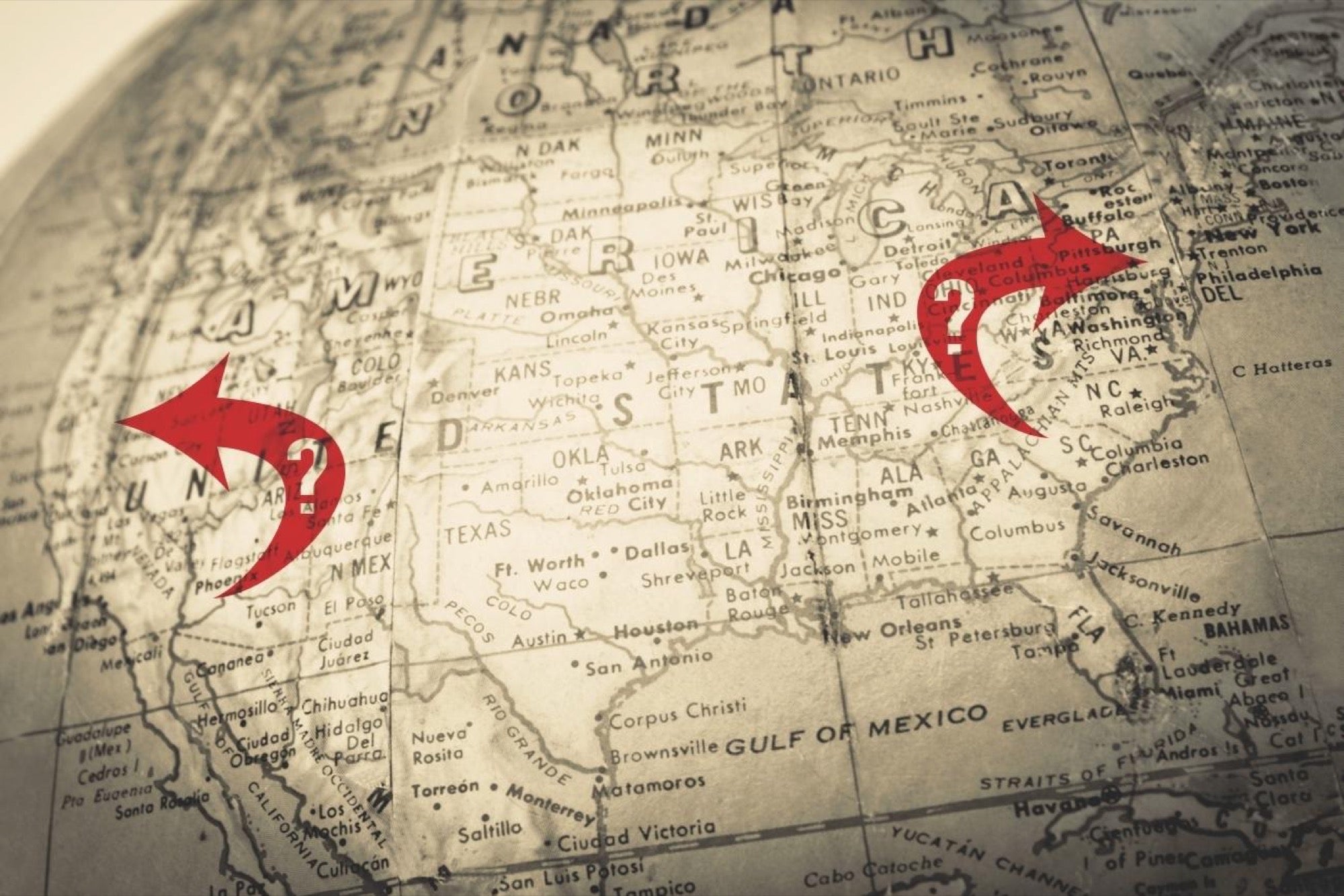Should You Head to the East or West Coast to Launch Your Startup? The cultures are different on each coast with VCs placing priorities on different areas when analyzing the funding of prospect.
By Andy Miller Edited by Dan Bova
Opinions expressed by Entrepreneur contributors are their own.

If you look at the top 20 U.S. cities for tech venture capital funding, you'll notice it takes a little while before you find a city that doesn't have an ocean harbor. (Provo-Orem, Utah checks in at number eight.) The list affirms what most of us in the startup community have believed for some time now: If you are an entrepreneur, it will serve you well to head to the coasts.
That's not to say it's a necessity to pack a swimsuit. Chicago, Austin, and Atlanta are among the interior cities with bourgeoning startup scenes. However, having gone through the rigors of raising money on both coasts, I have seen first-hand the rise of two vibrant startup communities, albeit with very with distinct ecosystems. The cultures are different, VCs place priorities on different areas when analyzing the funding of prospects, and the supporting infrastructure to scale your fledging company differs greatly.
Let's contrast these two coasts to shed light on how these startup scenes operate.
East Coast: The established experts
Related: Built for Business: Midtown Manhattan in the 1920s
It's easy to forget just how established the corporate community is on the East Coast, particularly in the Northeast. Boston had positioned itself as the premier trading port in North America by the late 1700s and global technology behemoths AT&T and General Electric have 19th century origins in the city. Wall Street's financial community was born in the 1790s with ventures into sea voyage risk sharing and government securities.
Those on the East Coast have had plenty of time to perfect their craft, and they know what works, namely revenue. If you have a meeting with an East Coast VC, be prepared to share hard numbers indicating how your idea is primed to deliver a hefty bottom line.
Additionally, the East Coast is home to some of the best-known technology and biotech companies in the world, which have been operating as large enterprises for decades. If you have a product that can help enterprises grow and become more efficient, you can't find a better place to be than New York City, Boston or Washington D.C. On the flip side, you may dead in the water if you have a consumer-focused idea. You'll just have to prove it can make money.
The East Coast is also filled to the brim with research institutions and universities which can be a boon to entrepreneurs if you know how to use them. Not only do you have close access to some of the smartest young minds entering the workforce, these institutions readily offer opportunities for startups, such as Harvard's iLab and StartupHoyas.
Even established corporations are beginning to support local startups. For example, here in Boston we have internal accelerators programs offered by PayPal and (shameless plug) Constant Contact.
West Coast: The new blood
Related: So, You Want to Move Your Startup to Silicon Valley. Now What?
People often point directly to Silicon Valley when discussing the impending tech bubble burst. While it remains to be seen if we are truly in the middle of another bubble, the speed at which Silicon Valley has grown is undeniable.
The stratospheric rise of Silicon Valley's startup scene means that there are a lot of relatively young people running around with a lot of relatively new money. They still have the energy, passion and ego to reinvest and have an influence over other young companies that pique their interest, making angel investors extremely influential in Silicon Valley and points surrounding. Relying less on the traditional, revenue-driven numbers that are valued on the East Coast, the newer crop of West Coast startup influencers and VCs have sprung a slew of consumer-focused startups. It is the potential number of users your platform can attract that matters, not so much how much they're paying for it.
One thing to watch out for: If you are looking to enjoy the Californian sunlight, you could find yourself constantly in the shadows. There are a plethora of startups vying for the attention of almost as many potential investors; sorting through the chaos in order to find a good fit for you and your company is extremely tough. This makes it essential on the West Coast to know people and develop the right relationships. If you don't, finding the right opportunities remains one of the biggest obstacles to success.
'Go West, (or East, or stay put) young man!'
Excellent ideas are not the product of the area in which they're born, they belong solely to the person or persons who originated them. This makes it possible for places like Provo City, Utah to have a successful startup scene, in addition to the coastal cities. Ultimately, with a great idea in-hand, you can find backers and supporters in most major cities.
However, this modern version of Manifest Destiny we are currently witnessing among entrepreneurs has startups migrating towards the coasts in droves in order to join like-minded and ambitious entrepreneurs. If you are one of them, by researching the differences between the East and West coasts and preparing accordingly, you become better situated to bask in light of success, regardless of whether you're among the first in the country to see the sun rise in the morning, or the last to see it set in the evening.
Related: 8 Reasons to Launch Your Startup Outside of Silicon Valley











